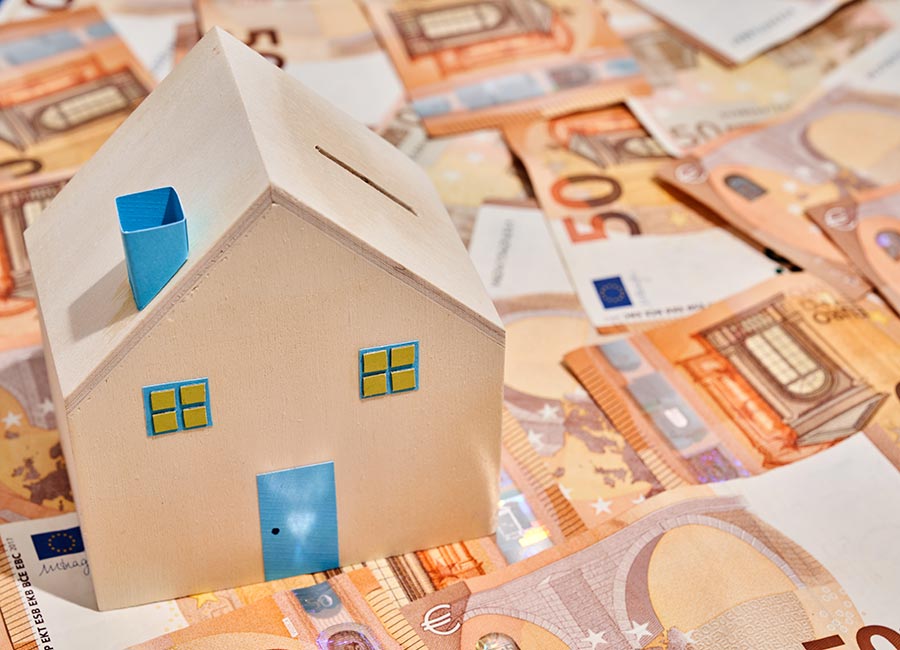2022 was the second-strongest year on record for investment in Irish property as €5.6bn worth of rent-producing assets were traded, BNP Paribas Real Estate Ireland's latest Irish investment market report shows.
Following blockbuster deals such as the acquisition of Hibernia REIT (€1.1bn) and the €500m sale of the Salesforce complex on Spencer Place, activity slowed sharply during the second half of the year, with transactions valued at €761.2m in Q4.
The largest transaction to take place in the final quarter, usually the busiest of the year in terms of average number of deals (78), was the sale of a suburban apartment complex in south Dublin for €135m as just 36 deals were agreed.
John McCartney, director of research at BNP Paribas Real Estate Ireland, said the drop off could be blamed on interest rates, which have been steadily increased by the European Central Bank (ECB) since last July in response to rising inflation.
Across Europe, investment turnover fell 57% year-on-year in the fourth quarter.
Office buildings accounted for the most investment for the first time since 2019, with investors spending €1.7bn (30.9%) on offices. The Salesforce deal was classified as a mixed-use investment, because the complex has an associated hotel,
The Hibernia REIT deal made up more than half of the value of the office market in 2022, reflecting the underlying demand for well-located, energy-efficient office buildings, but there were 37 other office deals.
In Q4, there were deals for office buildings with an aggregate value of €63.4m, in line with the overall slowdown but also due to softer demand, with office vacancy in Dublin set to reach c.15% this year, up from 10% in 2021.
Weaker demand is dragging on rents for all but the best offices, and investors have become more selective about the assets they are prepared to purchase as a result, McCartney said.
There is also limited availability of best-in-class, low-carbon buildings, but demand for such properties have driven office completions to their highest level in 14 years, driven by developer/investors such as IPUT and Irish Life.

Rapid population growth and high employment was credited for €153.4m of retail property changing hands in Q4 and annual turnover of €359m, the highest figure recorded since 2019.
Deals included the purchases of the Victoria's Secret store on Grafton Street for €28m, and recent lettings to Lego, Russell & Bromley, Dr Martens, Sketchers, Ecco, and Canada Goose have also helped to revive the thoroughfare post-Covid.
Much of the Q4 retail investment took place outside of Dublin, with the Dundalk retail park selling for €25m, and the Scotch Hall shopping centre in Drogheda changing hands for €17.3m. Wellpark Centre in Galway traded for €20m, and the Tullamore retail park sold for €18.5m.
Investment in logistics property fell 43% year-on-year, from an "unprecedented" €986m in 2021 to €453m in 2022, but Q4 was the slowest quarter for the sector since 2018, with just one logistics asset, a warehouse in Parkwest bought by Amazon, selling for €13m.
North America was the largest source of investment in Irish property, with Canada and the US combining for a gross inflow of €2bn, continuing a trend seen since US private equity buyers started buying up distressed assets following the financial crisis.
Following a dip in 2017-18, the gross inflow of American investment has picked up while the gross outflow, which peaked at €1.6bn in 2019, has fallen by over 60% in the past two years.
Looking ahead, BNP Paribas Real Estate Ireland has forecast that 2023 will be a slower year for investment in light of a continued tightening in ECB policy, and that the duration of the slowdown will depend on how quickly vendors and investors get on the same page.
"Notwithstanding the changed context, Ireland retains attributes that will continue to attract real estate investment capital," McCartney said. "Strong and sustained population growth provides favourable conditions for residential investment.
"However, with yields and build costs rising we are likely to see an increased focus on standing stock where opportunities can be identified. Ireland's favourable demographic profile will also underpin demand for logistics infrastructure - assuming it is priced correctly."
(Pic: Getty Images)










